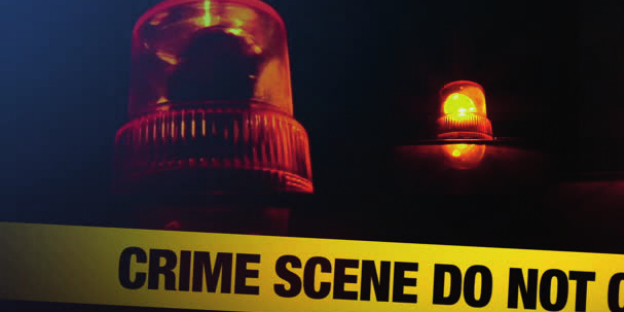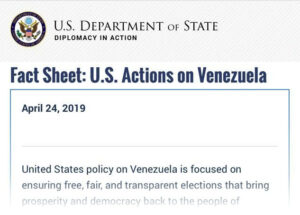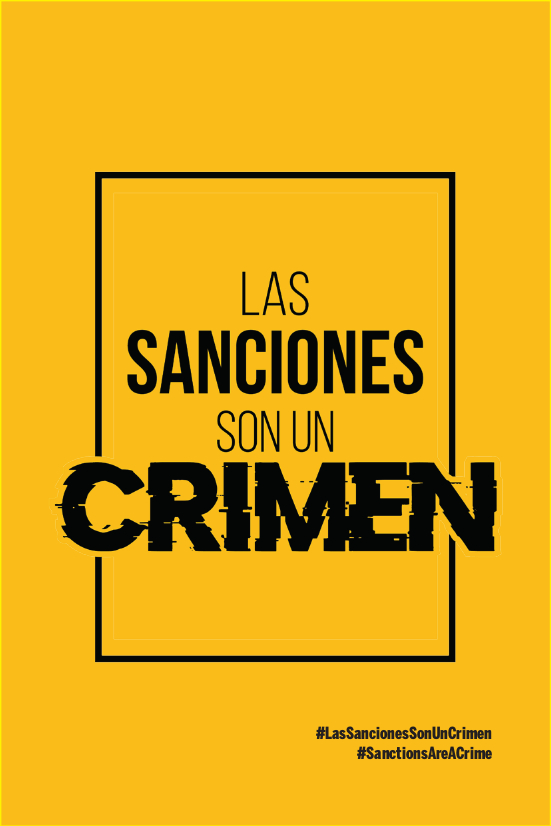
10 key points to understand the action carried out by Venezuela in defense of the national sovereignty and human rights of the Venezuelan people.
1 What happened on February 13, 2020?
On February 13, the Government of the Bolivarian Republic of Venezuela presented before the International Criminal Court a complaint (referral) to investigate the serious crimes committed against the Venezuelan population by the United States Government, due to the imposition of an economic blockade and unilateral coercive measures called, euphemistically, “sanctions”.
- Venezuela will file a lawsuit before international legal bodies for coercive measures unilateral against Conviasa
- Venezuela files a complaint with the International Criminal Court for unilateral coercive measures
- Venezuela denounces the US government before the International Criminal Court for crimes against humanity
- Vice-president Rodríguez: We go before the multilateral justice system to stop serious US violations of Venezuela
2 What is the International Criminal Court?
The International Criminal Court (ICC) is a permanent international court of justice whose mission is to try people accused of committing crimes of genocide, war, aggression and crimes against humanity. It is a different body from the International Court of Justice, a judicial body of the United Nations that deals mainly with disputes between States.
The ICC is governed by the Rome Statute adopted on July 17, 1998, which entered into force on July 1, 2002. The ICC is not part of the United Nations. The Statute textually establishes in its article one (1) that this instance: will be empowered to exercise its jurisdiction over persons with respect to the most serious crimes of international importance in accordance with this Statute (…).
3 What is the Rome Statute?
The Rome Statute is the constitutive instrument of the International Criminal Court. It was adopted in the city of Rome, Italy, on July 17, 1998. Venezuela was one of the first countries to sign (1998) and ratify (6-7-2002) the Statute and therefore is a State Party to this Treaty.
For its part, the United States did not ratify the Statute and consequently it is not part of the International Criminal Court. On the contrary, the US Congress passed a law on August 2, 2002, the American Service Members Protection Act, which excludes military officers and other members of the US government from criminal liability before the ICC. With the intention of weakening this body, it also signed agreements with a hundred countries of exclusion for its nationals. Venezuela refused to sign such exclusion.
4 What does the referral presented by Venezuela to the ICC consist of?
There are three ways to present a situation before the ICC:
- By referral from one of the States Parties
- At the request of the UN Security Council.
- At the initiative of the ICC Prosecutor to initiate an investigation.
In use of its rights as a State Party, contemplated in Article 14 of the Statute, on February 13, Venezuela submitted to the Prosecutor’s Office of the International Criminal Court the situation caused by the unilateral coercive measures (UCM) applied by the United States government. against Venezuela so that the Prosecutor’s Office investigates the commission of some of the crimes established in the Statute, and determines whether one or more persons should be charged for such crimes.
Although the Remission in the terms of International Criminal Law is not technically a “complaint”, in practice it has similar effects, which is why the terms remission and complaint can be used synonymously.
5 What were the crimes reported by Venezuela?
The complaint (referral) presented to the ICC Prosecutor’s Office indicates that the unilateral coercive measures (UCM) imposed by the US against Venezuela, since at least 2014, constitute a Crime Against Humanity, provided for in Article 7 of the Statute of Rome.
The policy of the United States against Venezuela focuses on reversing the revolutionary will democratically expressed by the people of Venezuela. In service of this goal, the United States has undertaken a series of strong political actions since 2017 aimed at putting pressure on the Bolivarian Government led by President Nicolás Maduro and supporting destabilizing terrorist groups.
6 Why crimes against humanity?
Venezuela denounced that the MCU comprise all the elements of the crime against humanity, in the terms provided in the Rome Statute, namely:
- “… an attack …” (not military). An attack is a line of conduct that involves the multiple commission of the acts referred to in article 7, paragraph 1, of the Statute.
- “… generalized or systematic …” (not necessarily directed at a specific group and spread over time)
- «… against a civilian population …»
- “… in accordance with the policy of a State or an organization …” (as effectively executed by the North American Government, through laws, decrees, executive decisions, regulations, threats and other multiform actions).
- On the back of the poorest | By André Scheer
- Bolivarian Government guarantees food security amid the US blockade < / li>
- President Maduro: Not even with a million sanctions the US will stop the CLAP < / a>
- US blockade causes damage to Venezuela for $ 116 billion
- CLAP strengthens distribution structure to combat US economic blockade </ a >
- Venezuela denounces the impact of measures before the FAO US coercive measures against the Venezuelan people
7 What is the Content of the Complaint?
The referral presented by Venezuela to the Prosecutor of the International Criminal Court is divided into two main parts:
- The Facts: This part details the situation in Venezuela before the application of unilateral coercive measures by the US government. Likewise, the impact that the MCUs have generated on the functioning of the Venezuelan economy, on the enjoyment of human rights of the Venezuelan people, and on the right to development of the Bolivarian Republic of Venezuela is reported.
In the document introduced before the ICC, Venezuela lists a group of cases and events that have impacted the Venezuelan population, such as the increase in infant and adult mortality, the increase in diseases, the reduction in caloric intake, the contraction in the importation of food, the impact on public services such as education, drinking water service, electricity service, and transportation; attributable to unilateral coercive measures and other threats imposed on Venezuela. - The Law: In this part it is argued about the illegality of unilateral coercive measures, the crimes that their application has generated are detailed, and the aspects of jurisdiction and admissibility before the ICC are developed.
8 Does the ICC have jurisdiction to try United States authorities?
The United States of America has not ratified the Rome Statute and therefore is not a State Party to that instrument.
For this reason, in the document consigned by Venezuela to the ICC, the thesis of “jurisdiction of effects” or “jurisdiction based on effects” is invoked.
That is, although the crimes were committed from the United States, a country that is not part of the Rome Statute, the harmful effects of the crime occur in the territory of the State Party, namely Venezuela, affecting its civilian population.
The document presented by Venezuela cites various cases known to the ICC where the Prosecutor’s Office ratified its competence to investigate nationals of States that are not party to the Rome Statute.
For this reason, the ICC does have jurisdiction to try United States authorities for the unilateral coercive measures applied against Venezuela.
9 What is the procedure that the complaint will follow?
After the brief is lodged with the ICC Prosecutor’s Office, it is the responsibility of the Prosecutor to carry out inquiries that lead to a preliminary examination and subsequently to initiate an investigation aimed at determining whether any of the crimes provided for in the Rome Statute were committed and the person or persons responsible for such events.
It is not for Venezuela to point out or identify the persons responsible, since that task must be carried out by the ICC Prosecutor.

10 What is Venezuela seeking with this complaint?
As President Nicolás Maduro has stated, Venezuela turns to the corresponding international bodies to seek justice.
The United States has produced immeasurable damage to the people of Venezuela that is measured in the impact on the life and health of millions of people, and especially vulnerable groups: boys, girls, adolescents, people with functional diversity, older adults, patients. and sick. The serious impacts on access to food, medicine, and in general, essential goods for the economy and national life, violate human rights and condition the development, sovereignty and independence of Venezuela.
Our State seeks to make our people and the world visible and aware of these serious crimes. Finally, point out and judge those responsible and press for the repeal of these illegal measures, which violate International Law and human dignity.
Sanctions are a crime
#Sanctions are a crime
#SanctionsAreACrime




